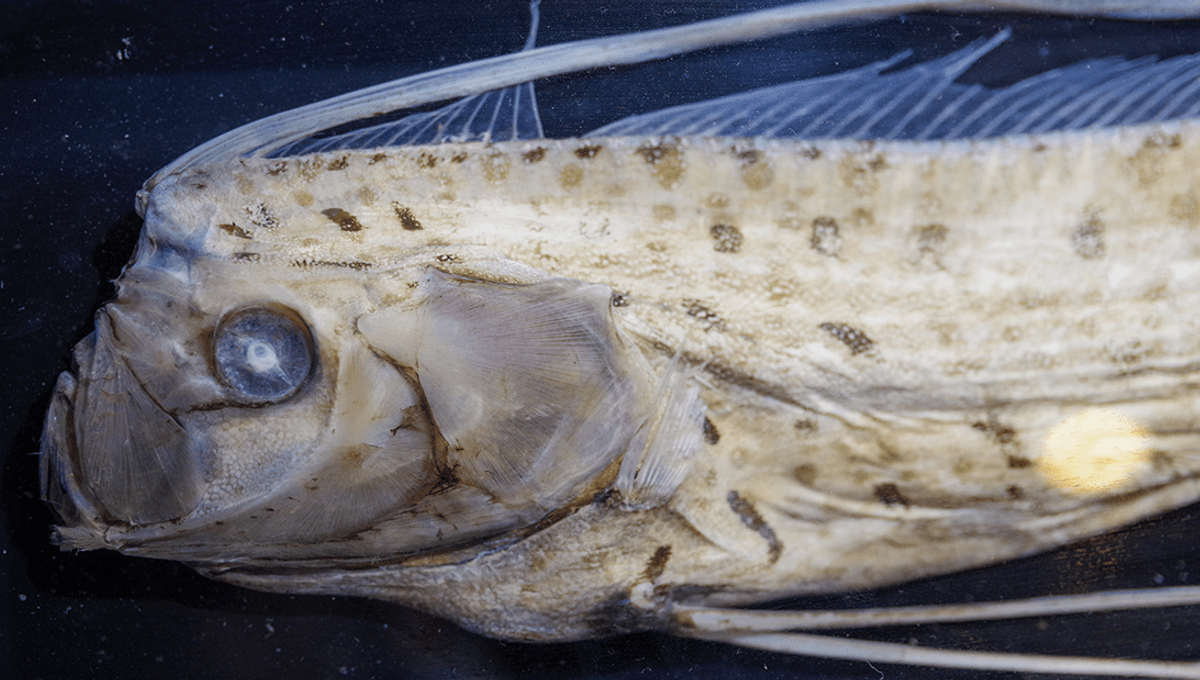
There is an old legend of a “doomsday fish” that has begun to resurface in recent years. According to old Japanese legends, sighting the rare animal – really an oarfish – is a harbinger of earthquakes and tsunamis.
The world’s longest bony fish – with the longest estimated to be 15 meters (50 feet) in length – are subject to a number of legends, and are thought to be partly responsible for ancient legends of sea serpents. Oarfish generally live at depths of around 200 meters (656 feet), though they have been found at depths of 1,000 meters (3,280 feet), making it rare for them to cross paths with humans, only adding to their mystery and intrigue.
Japanese myths call the creature “ryugu no tsukai”, or “messenger from the sea dragon god’s palace”, and say that they emerge to the surface to warn the land-dwellers of upcoming earthquakes. In the 2010s, following several deadly earthquakes and tsunamis, this old myth was spread again.
The belief that animals act differently prior to earthquakes, or know that earthquakes are coming, dates back at least to 373 BCE, when Greek historian Thucydides wrote that dogs, rats, snakes, and weasels deserted Helice days ahead of a deadly earthquake that hit the city. Other anecdotes from history have claimed animals behaved strangely prior to earthquakes too.
“Some minutes before they were felt, the oxen and cows began to bellow, the sheep and goats bleated, and, rushing in confusion one on the other, tried to break the wicker-work of the folds; the dogs howled terribly, the geese and fowls were alarmed and made much noise; the horses which were fastened in their stalls were greatly agitated, leaped up, and tried to break the halters with which they were attached to the mangers; those which were proceeding on the roads suddenly stopped, and snorted in a very strange way,” one account of the Naples quake of 1805 reads.
“The cats were frightened, and tried to conceal themselves, or their hair bristled up wildly. Rabbits and moles were seen to leave their holes; birds rose, as if scared, from the places on which they had alighted; and fish left the bottom of the sea and approached the shores, where at some places great numbers of them were taken.”
The account goes on to say that ants and reptiles abandoned their homes, while locusts flew through the streets.
“Some dogs, a few minutes before the first shock took place, awoke their sleeping masters, by barking and pulling them, as if they wished to warn them of the impending danger, and several persons were thus, enabled to save themselves,” the account adds.
However, the problem with anecdotes like this is that they are anecdotes and they rely on people retroactively noticing the strange behavior of animals after the earthquake has happened.
While rare, encounters with oarfish do happen. Sometimes they happen when there are no earthquakes, and sometimes they are found shortly before one. Guess which one is getting talked about?
It would of course be really, really useful to be able to predict catastrophic weather events based on fish movements, even if it isn’t entirely plausible.
Scientists have looked into it, with one team looking at records of sightings of deep-sea fish and records of large earthquakes. The study found that out of 336 sightings of the fish and 221 earthquakes over the same timeframe, only one sighting could be correlated. “As a result,” they wrote, “one can hardly confirm the association between the two phenomena.”
Source Link: What Is The Doomsday Fish? And Why Were People So Scared Of Seeing Them?